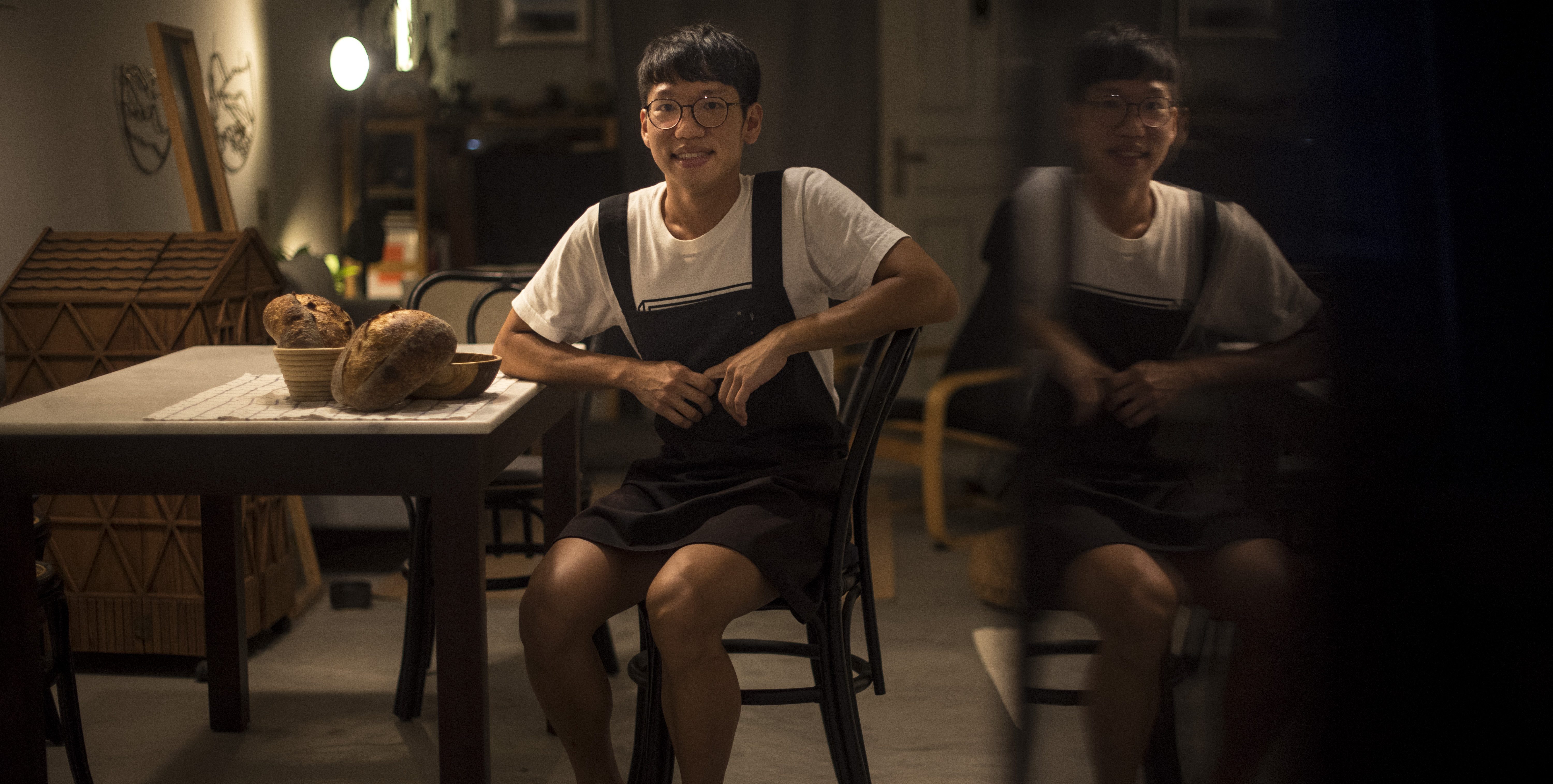Justin is a trained sculptor and an art teacher in a secondary school, but is probably better known as half of the duo who runs the popular Serangoon Sourdough, a home-based bakery that sells, well, sourdough bread (surprise!).
Actually, let me correct the above statement. Justin is a soon-to-be ex-teacher in a secondary school, for he has since tendered his resignation and is leaving his teaching job at the end of the year to attend pastry school and focus on his baking business.
Giving up a corporate-ish job to pursue your passion may sound like the millennial fantasy come true. But, like so many Tinder profiles, the dream is not as beautiful as it initially appears, and, for Justin, neither is the decision as straightforward.
Money, for one, is a problem. Exacerbating his financial worries is his mother’s reaction. When she learnt of Justin’s decision to quit teaching and pursue baking, her first response was: “How much was your last drawn pay ah? How long do you intend to not work?”
“Then I fall down into this anxiety stream—” Justin continues, before he corrects himself as he chuckles self-deprecatingly, “Sorry, I said I’m hopeful right? I am excited about the future. I’m hopeful.”
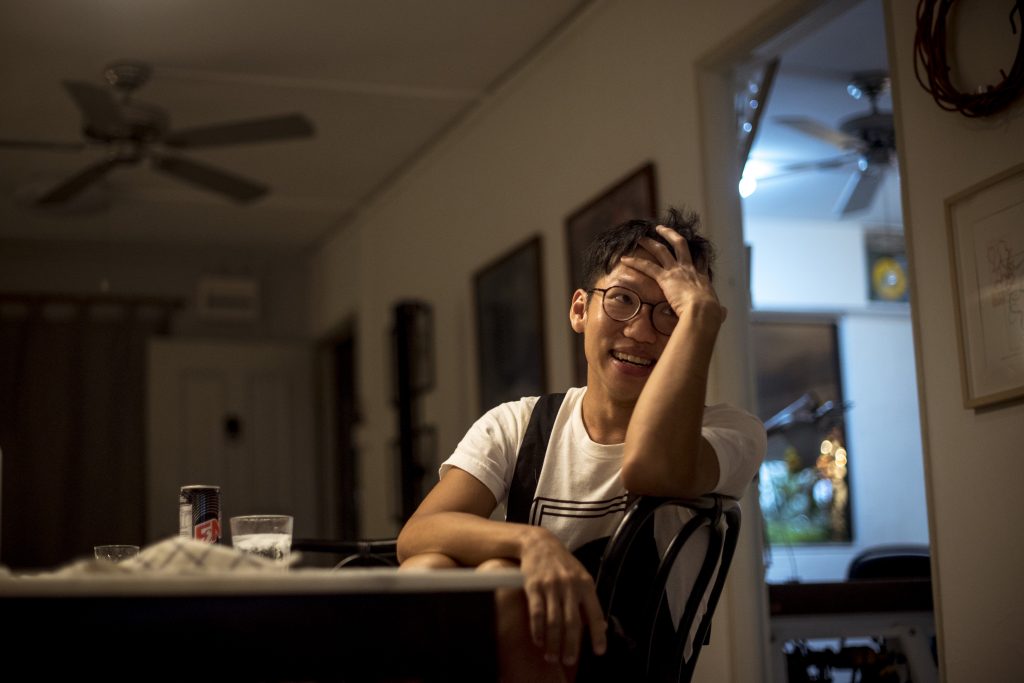
Justin explains that Jenny works as a freelance jeweller who earns most of her money through public sales and teaching corporate classes. A virulent pandemic put an end to pop-up markets and office attendance, and, with them, Jenny’s means of supporting herself.
“So we had to find some way of getting an income,” Justin says.
Prior to the circuit breaker, Justin was already baking sourdough bread for his friends and colleagues, purely as a hobby. When the stay-home notice was implemented, he started receiving bread requests from them because “they didn’t want to leave the house”.
“So we thought, ‘Okay, let’s try this out.’”
Justin then baked a batch of cinnamon rolls with his sourdough starter, took some photographs, and posted them on the Instagram account of Serangoon Sourdough.
“There was a good response,” Justin recalls. “I had a few DMs that asked, ‘Are you going to sell this?’”
But his follower and customer count only exploded when Justin’s sister-in-law sent a box to her friend, who owns a business called Hock Siong. (Justin explains that “it’s like a fancy corporate karang guni.”) That friend, in turn, posted a photograph of said cinnamon rolls on her company’s very popular Instagram account, which single-handedly tripled Serangoon Sourdough’s followers in two days.
“For a whole weekend, I was just responding to people’s DMs,” Justin exhales. “They were asking, ‘Can I get a box? Can I get a box?’
“I was also going into it without any sales background. I’m a teacher, right? I’ve never had to do any sales. I didn’t know what people needed in a transaction. Do people want a receipt or confirmation? Do they pay first or pay later?”
Justin chuckles, “It was a stressful weekend. But suddenly I realised people want cinnamon rolls. So, sure, let’s give it to them.”
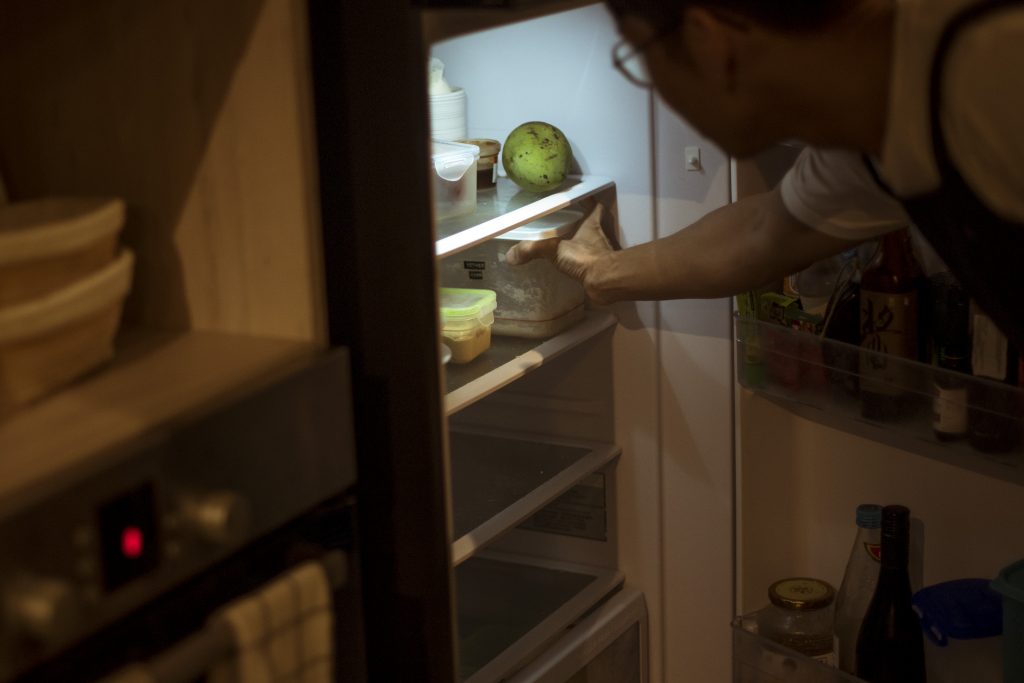
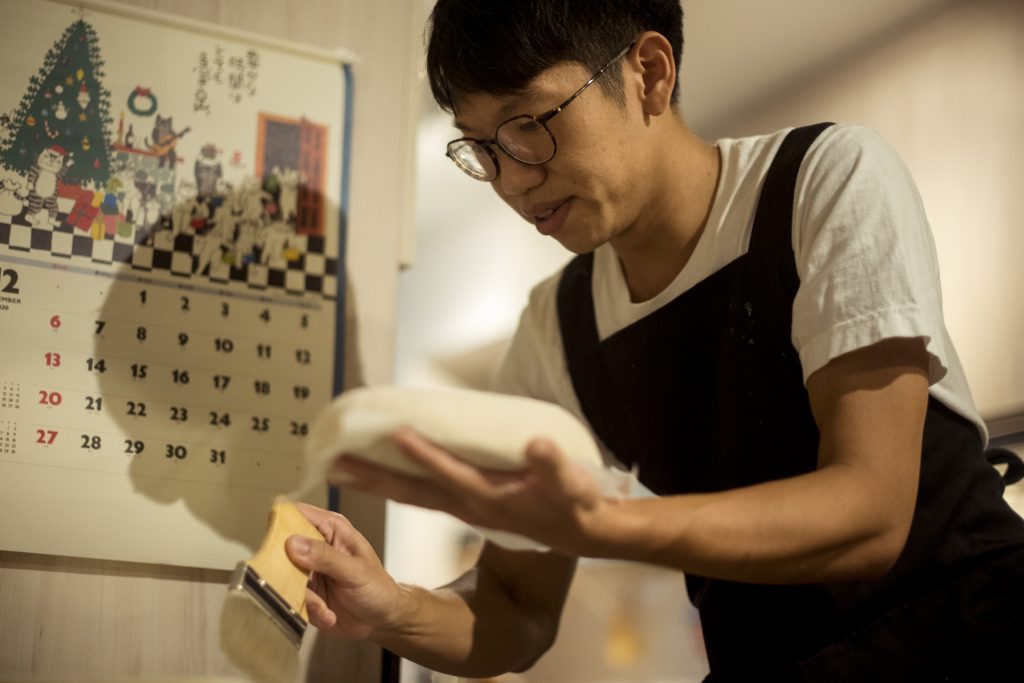
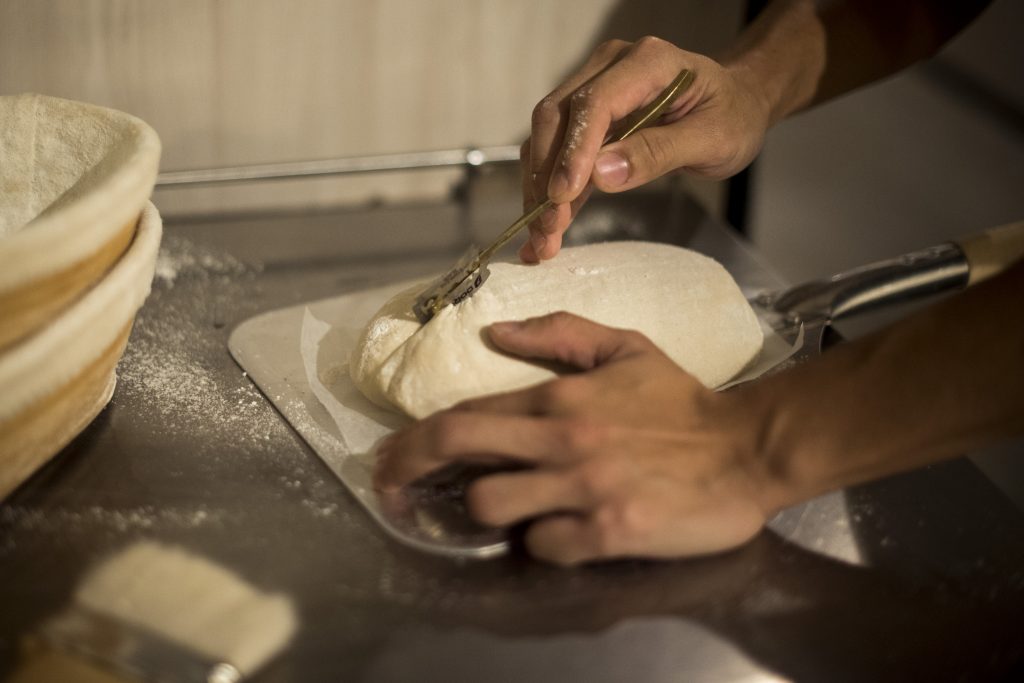
Justin pauses to organise his thoughts, and reflects, “In my 20s, I told myself that by the time I hit 30, I would figure out what I want to do in life. I turned 31 in June and I realised I still don’t know what to do.
“During my birthday this year, we were in the thick of baking … it wasn’t a fantastic income from bread, you can’t make a lot of money through bread, but it was enough sales for me to realise that I can do something no one told me to do.
“I think, growing up as a Singaporean, a lot of the decisions get made for you. But baking bread was one thing that I could decide for myself. It’s just something that I wanted to do of my own accord. And people seem to be willing to pay me money for it. So why not? Let’s just do it.”
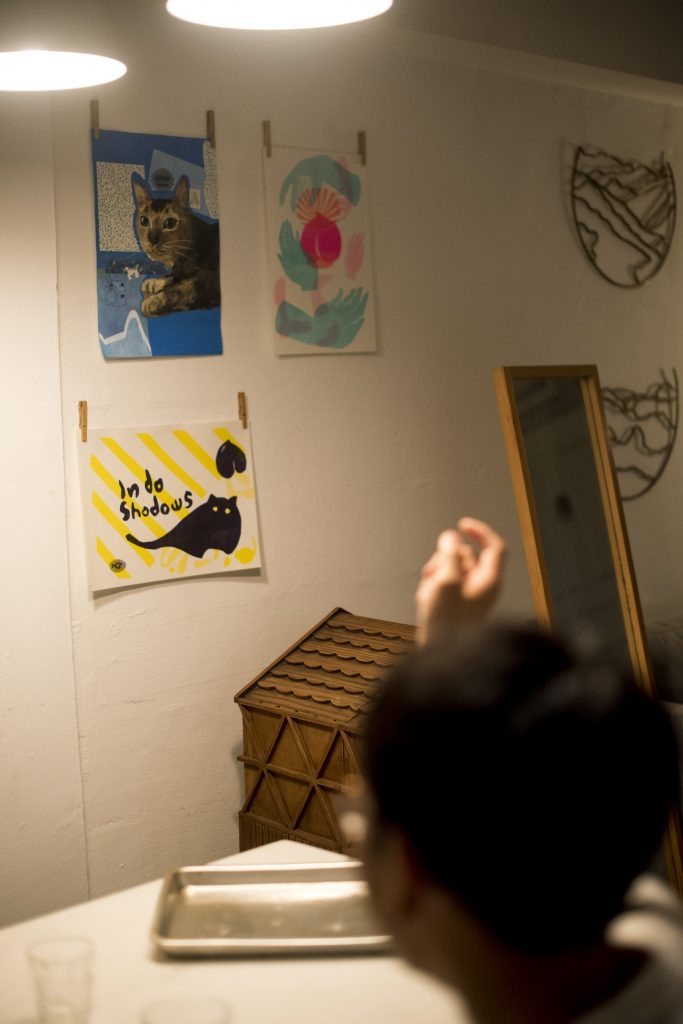
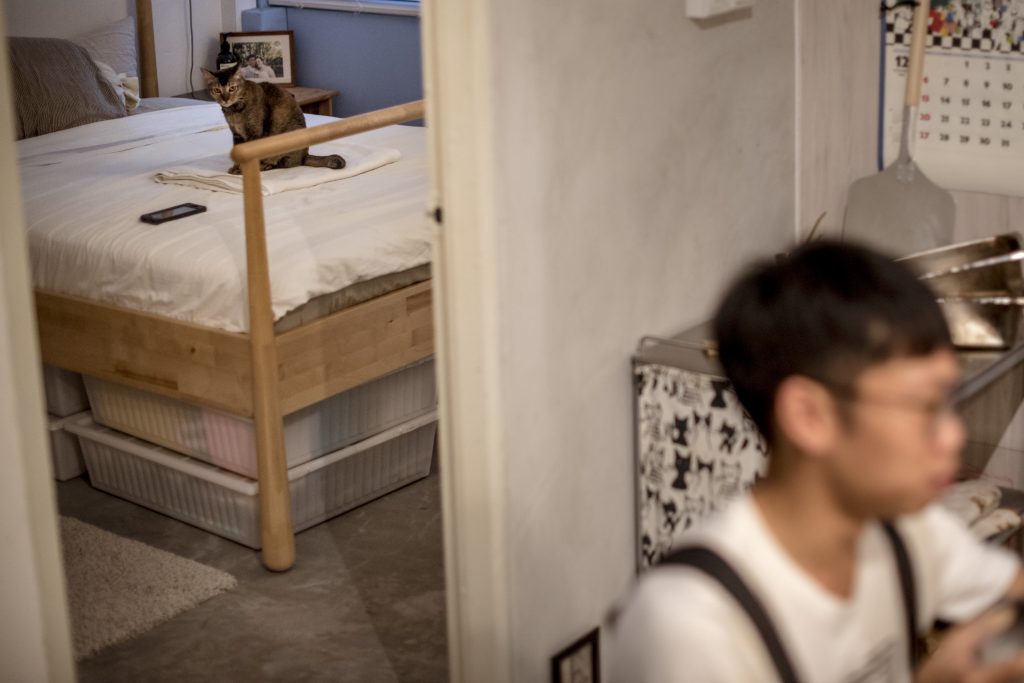
Having taught for over five years, however, made Justin itch for new experiences. Moreover, he couldn’t dismiss that niggling sense of cognitive dissonance at how he, as a teacher, would “peddle all these things about life-long learning, taking SkillsFuture course, without actually practising them [him]self.”
“I figured if I really want to be a better teacher in the future, I should do all these things. I need to get some life experience that puts me outside of school and gets me to be around other parts of society.
“Teaching in school can be a bit insular. For me, I felt like [quitting my job as a teacher and picking up new skills] would make me a better teacher in the future.”
And if it weren’t for Covid, he would probably have continued teaching in his secondary school.
He reasons: “Covid has shown that the world can explode at any time. Let’s make things happen before things really go to shit.”
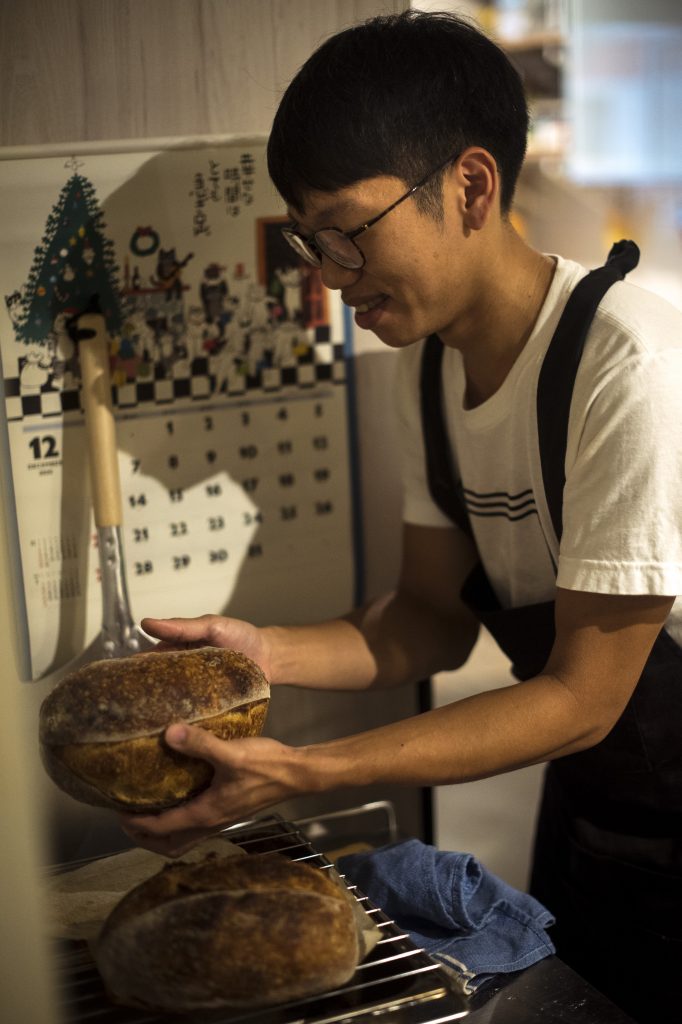
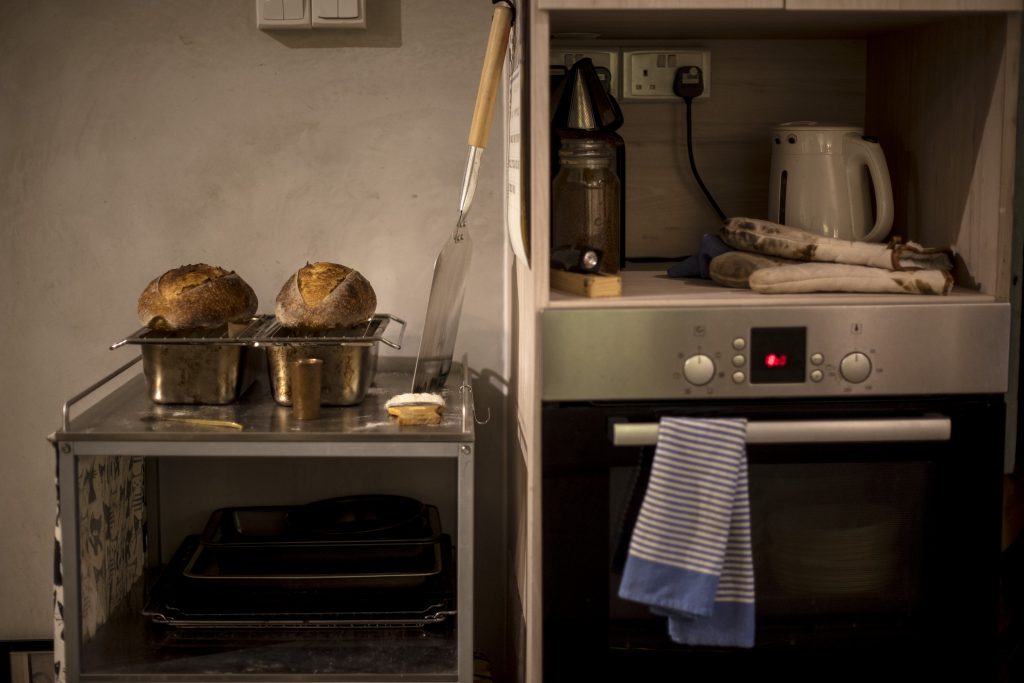
Money aside, Justin’s “main existential crisis” in baking sourdough bread, as he puts it, is that he is “building on this whole capitalist culture of buying fancy shit and eating fancy shit.”
It’s a hard charge to defend against. Sourdough, in Singapore at least, is inextricably associated with yuppie and bougie culture.
You’re not going to find ah peks dipping kaya sourdough toast into their kopi, or aunties placing $3 plastic-wrapped sourdough loaves into their green NTUC shopping baskets. You’re more likely to spot some buff dude with coiffed hair or a svelte lady in Lululemons nibbling on a $20 slice of sourdough smothered with avocado and smoked salmon at a café in Upper Thomson as a reward for completing their F45 session.
A loaf of sourdough itself can run up to a heart-pain price of $30, though most hover in the range of $12 to $18, depending on how atas their fillings are (which run the gamut from smoked mushroom, duck, to rum-soaked cherries, chestnut, etc.).
This is why Justin refuses to raise his prices—his basic country loaf starts at $7, a third less than the cheapest loaf from most commercial bakeries, and, indeed, other home bakers.
“I do get pushback from other home bakers who tell me I’m spoiling the market,”
Justin reveals. “It’s not outright, but they tell me, ‘You might want to match my prices’.
“But how many people can afford a $10 loaf of bread? If you ask me whether I will buy a $10 loaf of bread to feed myself, I wouldn’t,” he continues indignantly.
“This is a HDB estate. I like to be able to sell this bread to someone in the other block—which I do—and I like them to be able to afford this. I cannot sell it to my neighbour for more than $7 … I’d feel bad for making her pay that.”
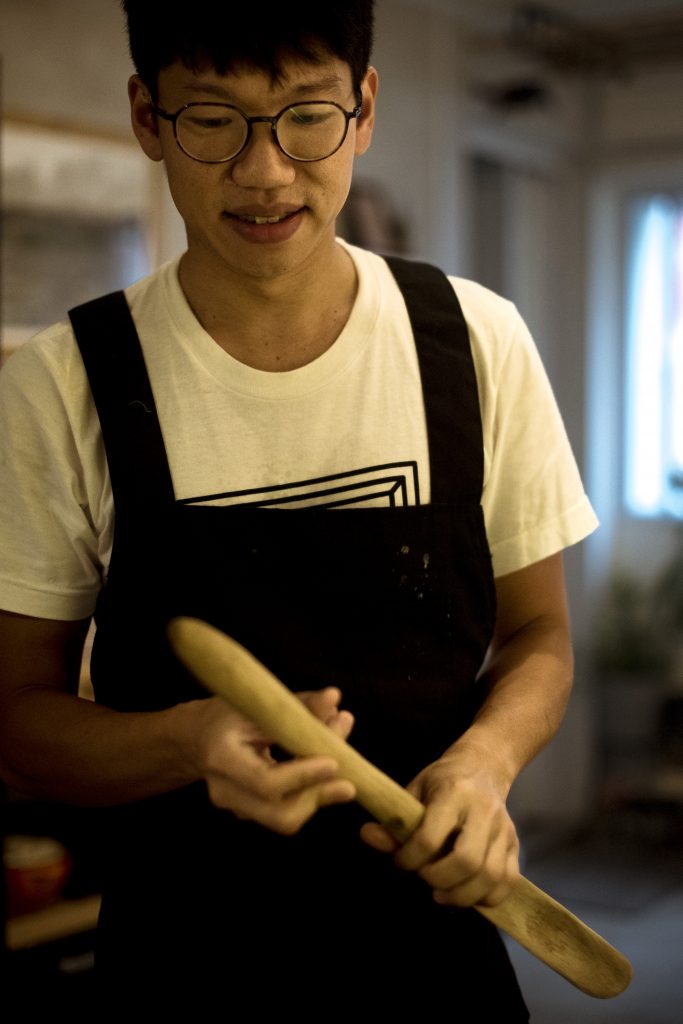
“For example, I’m doing 21 loaves this Sunday. So I take out this big bowl—what we affectionately call ‘Big Boi’, tie a headband, banzai-style, blast ABBA, and go at the dough with both hands.
“It’s an experience,” he grins.
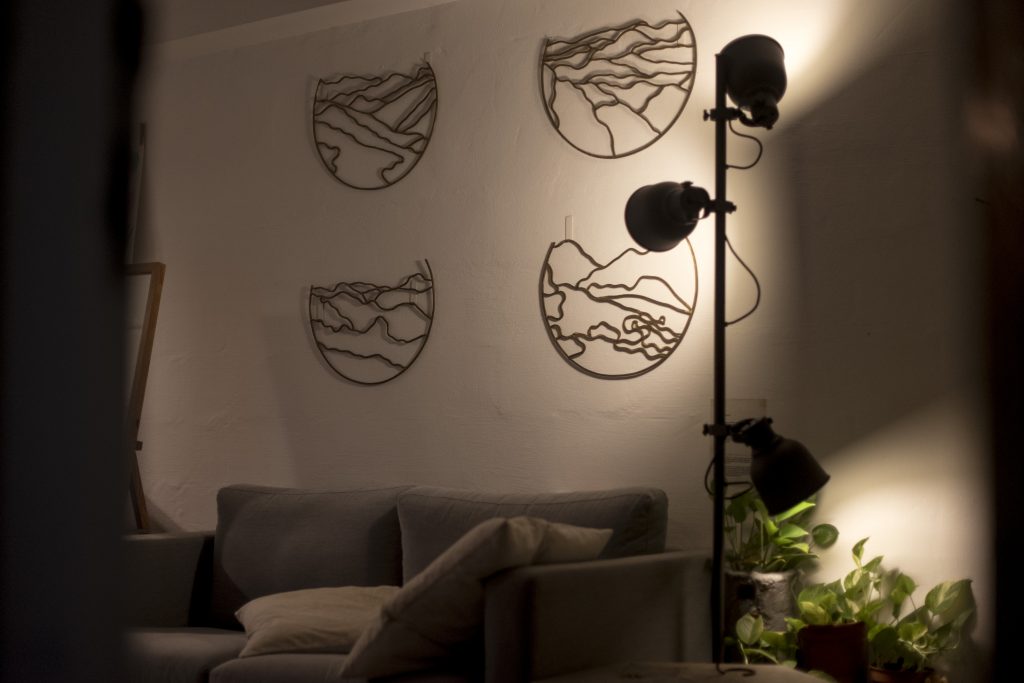
This ethos translates into how Justin operates as a baker. To him, profits—to a certain extent—don’t matter as much as someone finding joy in a loaf of bread that he bakes. When he sells a loaf of bread to a customer, it’s not just a transaction. It’s almost akin to a communion, which is why Justin keeps one loaf of every batch.
“So when I eat the loaf, it’s like I’m breaking bread with you.”
“And if my bread can help someone find joy in life and see beauty in something simple, I’ll be happy with my place in life.”
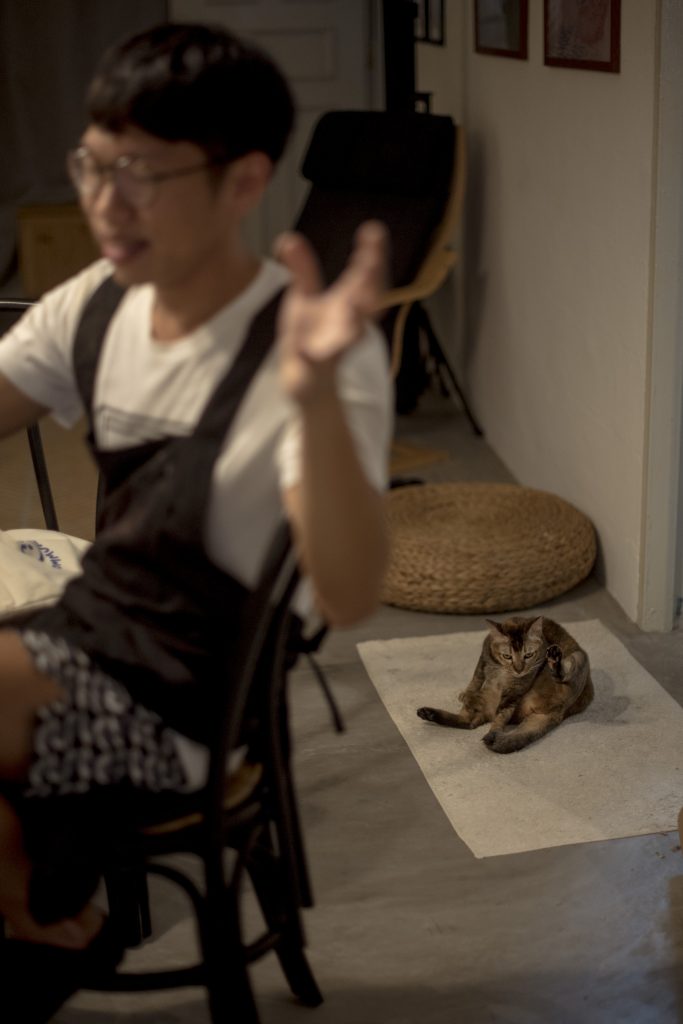
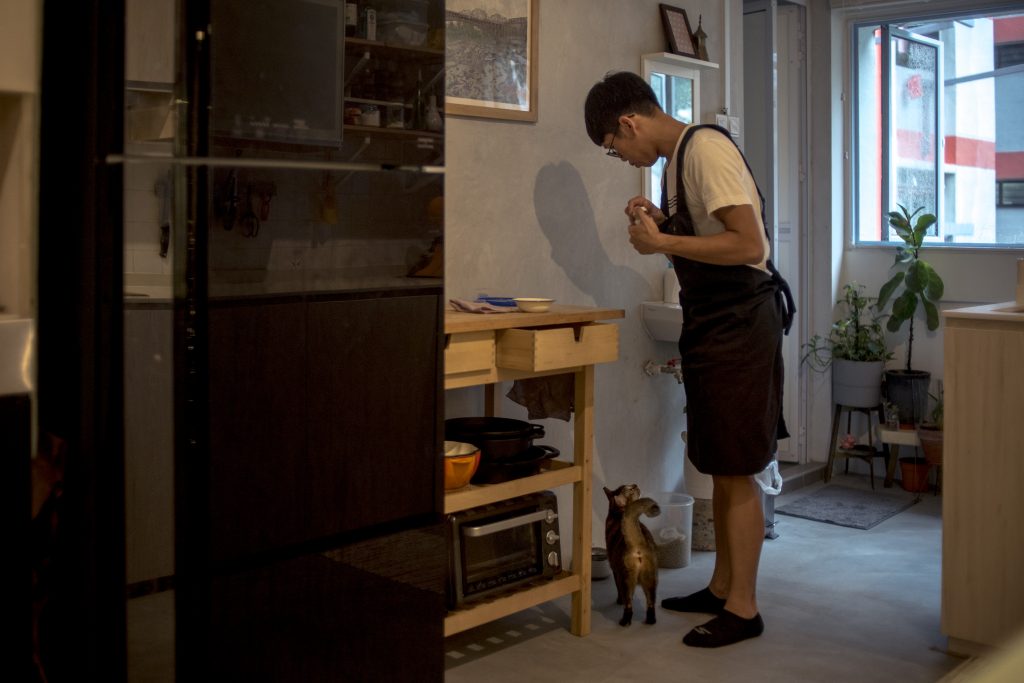
Before that, however, he is aware that he has several years of working in a bakery before he can even dream of opening his own. So, for Justin, it is off to pastry school first, before finding employment as a baker somewhere. (As for Jenny, she is currently pursuing a job opportunity overseas.)
I ask Justin if he has any regrets about quitting his job as a teacher and devoting his time to a potentially risky venture, something in which he, at his own admission, has no experience.
With the Zen of a Buddhist monk, he replies, “If there’s anything we picked up this year, it’s not to worry so much about what is going to happen. If, in January, suddenly no one wants to eat sourdough bread, that’s fine.
“5 years ago, I was pretty rigid about what I wanted to do. There was a certain kind of art I was trying to make. I wasn’t listening to the market, to the art world. So I just wasn’t hitting certain things that could have gotten me somewhere in art.
“Today, if I could tell the me from 5 years ago something, it’s to be flexible and respond to what is happening in the world. Be willing to change how you operate and what you do. Don’t be afraid to go in a direction you didn’t expect.”
With one very important caveat: “I don’t want to fall into the trap of making desserts for rich people having high tea. That will kill me, I think,” he laughs.
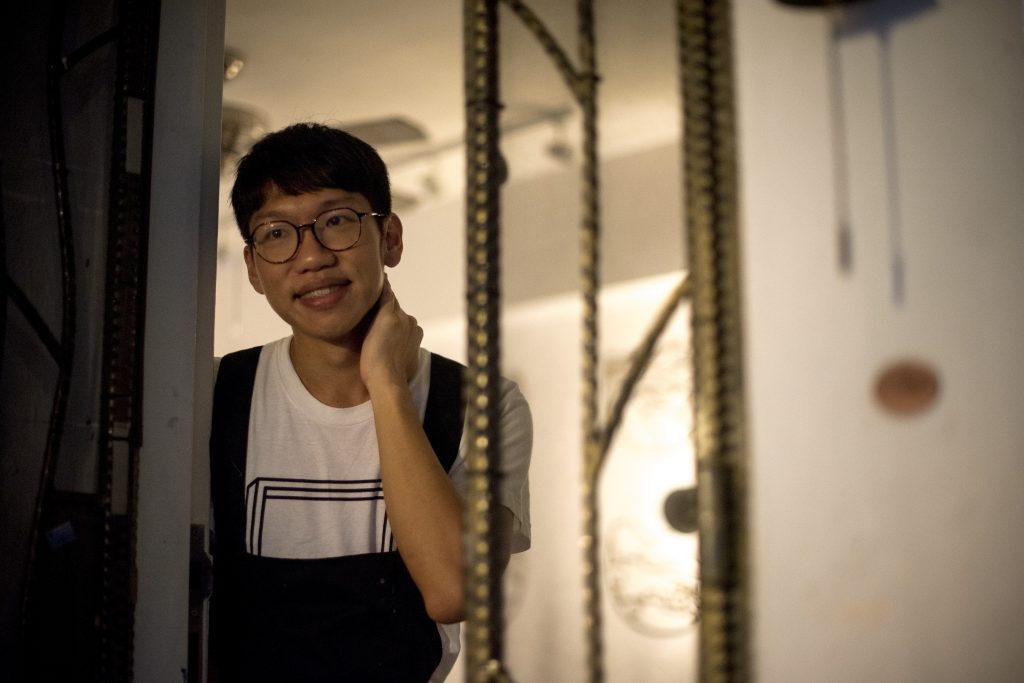
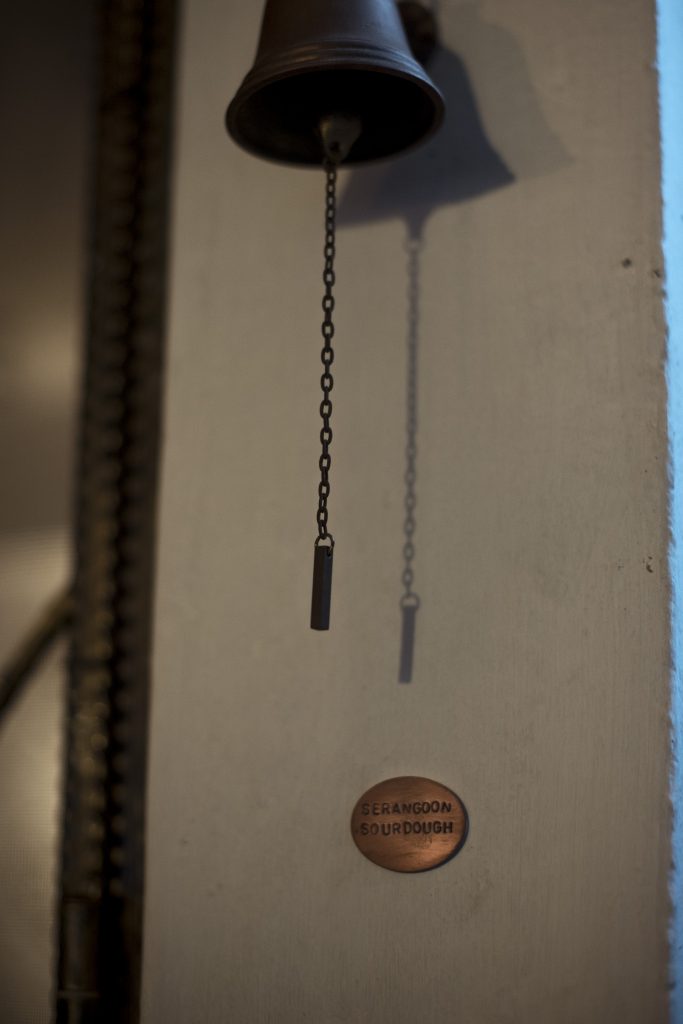
The only reason why I continue at all / Faith in reason, I wasted my life playing dumb.
“I love this song”, I gush to Justin as he hands me my turmeric spice loaf.
“It’s been on loop the whole day,” he smiles, before turning back to his kitchen, disappearing into the smells of bread baking, of wheat, under intense heat, transforming into the substance of life.
If you haven’t already, follow RICE on Instagram, Spotify, Facebook, and Telegram.

